Existing Homes
 |
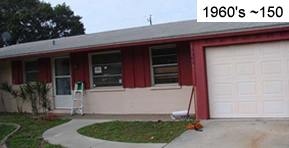 |
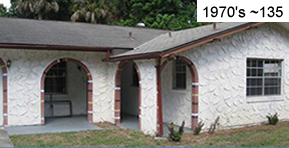 |
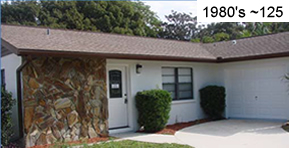 |
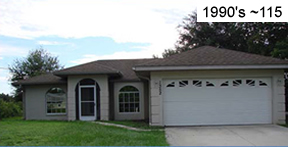 |
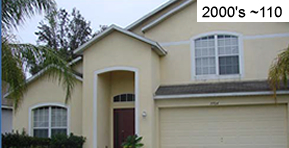 |
Based on a four-year study, 10 affordable housing entities who completed 70 comprehensive renovations, FSEC researchers have distilled a set of practical, off-the-shelf best practices for renovations in typical Florida homes. When fully implemented, they cost-effectively produce about 30% improvement in whole house efficiency (HERS Index). Measures include moderately higher performance specifications at equipment replacement (HVAC, appliances, water heating, etc), efficiency enhancements (e.g. ceiling insulation), and building science measures that address combustion safety, durability, and moisture management. After a 2012 pilot with the City of Melbourne, researchers invite the remodeling, renovation, and affordable housing sectors to take the Retrofit Challenge by adopting the best practices as master specifications in 2014. Master specifications create a standard treatment across multiple projects and reduce time needed to write scopes of work. Find out what our past partners say about their experience with the best practices.
Review the best practices: http://fsec.ucf.edu/en/publications/pdf/FSEC-RR-444-13.pdf
**Affordable, Practical, “Off The Shelf” Best Practices**
Health, Safety, and Durability Measures (Risk Reduction):
Combustion safety
Whole house pressure balance
Moderately higher performance replacements:
Heating & cooling system (SEER 15 heat pump)
Windows (low‐E)
Water heating (EF 0.92)
Energy Star lighting, appliances, and ceiling fans
Light or white exterior finishes
Meet new construction code for heating and cooling
Efficiency Enhancements:
Substantially leak free duct system
R‐38 attic insulation
Window film
Air sealing at plumbing and fixtures openings
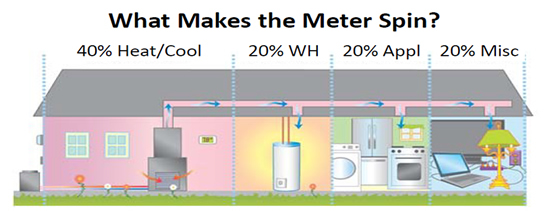

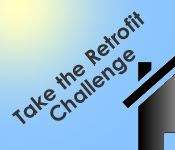 |
Case Studies
 |
Applying Best Practices to Florida Government Retrofit Programs During 2009, 2010, and 2011, researchers of DOE’s Building America Partnership for Improved Residential Construction (BA-PIRC) provided analysis and recommendations to eight affordable housing entities conducting comprehensive renovations in 70 distressed, foreclosed homes in central Florida (Phase 1). Partners achieved a mutually agreed upon goal of 30% improvement in HERS Index score 46 renovations. |
 |
Lake Sumter Habitat for Humanity Lake Sumter Habitat for Humanity purchased and renovated the unoccupied 1,040 ft2 slab-on-grade, single family ranch home in Eustis, Florida to demonstrate that low-income housing can be affordably renovated to achieve big savings. With the help of Building America researchers from Pacific Northwest National Laboratory and the Florida Solar Energy Center, energy-efficient measures were implemented that reduced annual energy bills by an estimated 42%. |
 |
Habitat for Humanity of Palm Beach County Habitat for Humanity of Palm Beach County, working with Building America researchers from Pacific Northwest National Laboratory and the Florida Solar Energy Center, upgraded this previously unoccupied 1996 home in Lake Worth, Florida to achieve an estimated 39% improvement in energy efficiency. The 1,573-ft2 slab-on-grade, single-family home received extensive energy upgrades during its conversion to affordable and efficient housing for low-income families. |
 |
Habitat for Humanity Palm Beach County, Florida: Existing Home Retrofit This unoccupied, foreclosed, single-family detached home in Lake Worth, Florida was initiated in 2011 by Habitat for Humanity Palm Beach County, Inc. Built in 2003, this three bedroom, two bath, frame construction home has 1,373 square feet of conditioned space. A test-in audit was conducted to document the home’s pre-retrofit characteristics, which served as the retrofit base case model. The home had many energy efficient elements incorporated into its original construction. |
 |
Habitat for Humanity of Brevard County, Florida: Existing Home Retrofit 1 Renovation of this unoccupied, foreclosed, single-family detached home in Melbourne, Florida was completed in 2011 by Habitat for Humanity of Brevard County, Inc. The home was built in 1964 and has 1,608 square feet of conditioned space. Key energy efficiencies included the installation of high efficiency windows, the use of efficient lighting almost exclusively, and an increase in ceiling insulation to R-38. |
 |
Habitat for Humanity of Brevard County, Florida: Existing Home Retrofit 2 This unoccupied, foreclosed, single-family detached home in Melbourne, Florida was initiated in 2011 by Habitat for Humanity of Brevard County, Inc. Built in 1962, this three bedroom, two bath home has 1,583 square feet of conditioned space. Measures with the most significant contribution to projected energy cost savings included the the installation of low-E windows, the reduction in house and duct leakage, andthe installation of R-38 ceiling insulation, respectively. |
Reports
Energy Retrofit Field Study and Best Practices in a Hot-Humid Climate
For More Information: Contact Janet McIlvaine at 321-638-1434.
